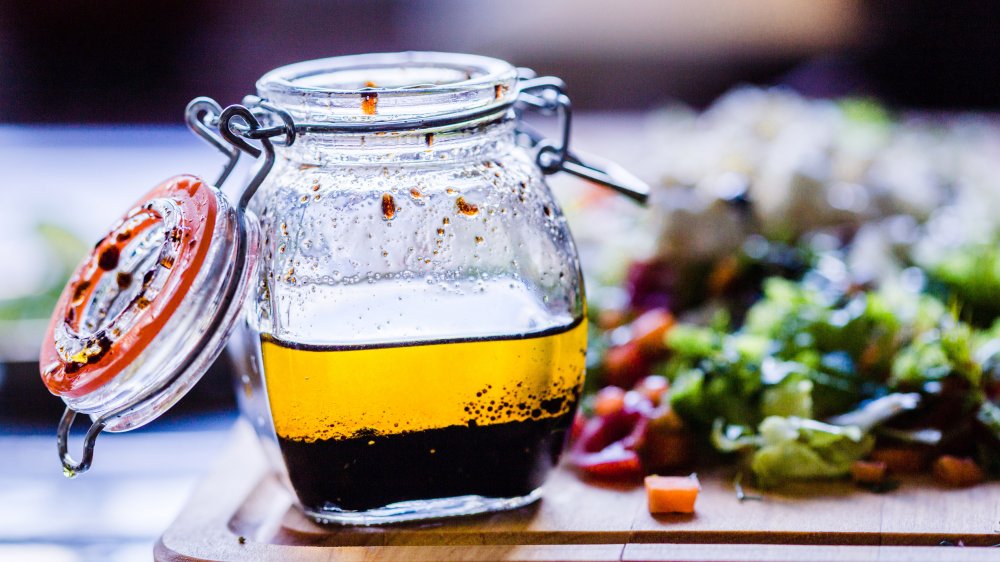Here's What You Can Substitute For Balsamic Vinegar
Balsamic vinegar is an incredibly popular ingredient found in a lot of salad dressings, marinades, and sauces, but sometimes the bottle runs dry. Good balsamic vinegar takes time to age and become sweet, which can also make it quite pricey as well. If you simply don't have any more on hand or are trying to avoid buying an expensive bottle, then you might want to consider using a substitute (via Healthy & Wise).
There are quite a few alternatives to balsamic vinegar that can be used. One might be easier than others, however, thanks to its use of a few staples you probably already have in the pantry. To mix up your own balsamic vinegar substitute at home, all you need is cider or red wine vinegar — plus sugar — for a basic mixture. Just stir up 1 tablespoon of the liquid with 1/2 teaspoon of sugar and mix well. This will be enough to replace 1 tablespoon of balsamic vinegar that a recipe may call for (via Better Homes & Gardens).
Other substitutes to try for balsamic vinegar
To manipulate the flavor a bit more or if you do not have sugar, cider, or red wine vinegar on hand, there are several other substitutions you can use in place of balsamic vinegar. First, it's vital to consider what it is you plan to make when picking your substitute, as some might hold up better as marinades than drizzled over salads.
If you have cider or red wine vinegar, but you're out of granulated sugar, you can also use brown sugar or honey to make the same substitution. Another really easy substitute is to use balsamic vinaigrette if you have a bottle of the dressing laying around in the refrigerator (via The Spruce Eats).
The other alternatives to balsamic vinegar call for a bit more work or ingredients. One is a combination of equal parts lemon juice, molasses, and soy sauce. This will help you achieve that salty, sweet, and bitter acidity that complex balsamic vinegar adds to recipes. Another option is to add five parts vinegar to one part sugar in a saucepan. Cook it over low heat until it reduces and thickens, and don't forget to stir constantly.

